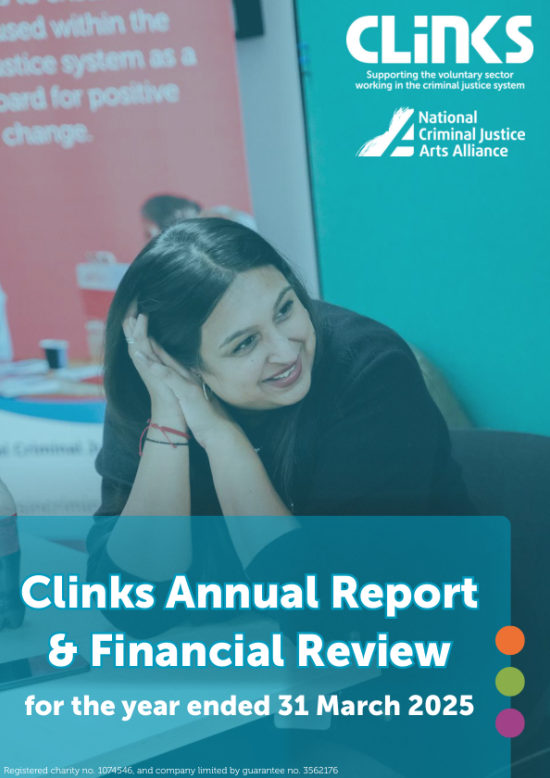A summary of Her Majesty’s Inspectorate of Probation’s probation supply chains report
This week HMI Probation published a report of their thematic inspection of probation supply chains. This inspection intended to identify the extent of provision of specialist services for people under probation supervision and review how subcontracting between Community Rehabilitation Companies and organisations that provide these services is working.
Welcoming HMI Probations report, Clinks’ chief executive, expressed Clinks disappointment in its findings that the policy intention that Transforming Rehabilitation would result in the greater involvement of the voluntary sector in the delivery of probation had not been realised. At the same time however, Clinks was not surprised to read these findings which chime with what the sector has been telling us since the reforms were introduced and which support the findings and recommendations of our own TrackTR work to monitor the impact of TR on the sector, as well as the findings of Public Accounts Committee report into TR earlier in the month.
What did HMI Probation find?
Following up on Anne’s statement this blog provides a quick summary of the key points in HMI Probations report.
The extent and nature of voluntary sector involvement
HMI Probation found that no one body was clear about the extent of the national Tier2/3 supply chain (Tier 2 organisations being those subcontracted to by the CRC and tier 3 being those subcontracted to by a tier 2 organisation).
The ‘black box’ contracts which were intended to give CRCs freedom to design appropriate services meant that CRC intentions regarding their supply chains, as expressed in their bids were not written into contracts. As such supply chains have not been established at the anticipated scale.
The inspection found that provision is limited with small scale or non-existent supply chains and fewer providers present than under the previous probation trust model. Many CRCs initially novated contracts from the previous probation trusts but as time has gone on a noticeable proportion of these have been discontinued.
In the course of the inspection HMI Probation reviewed eight Community Rehabilitation Companies as well receiving information from all 21 CRCs as part of national mapping of supply chains exercise.
Of the eight CRCs inspected there were an average of three tier 2 providers in their supply chains and virtually no tier 3 providers. In total across the eight CRCs there were 26 Tier 2 providers and all but two of these were voluntary sector organisations. Women’s services were most commonly provided by Tier 2 providers: in six of the CRCs inspected, Tier 2 provision included a women’s service.
The national data, which had some limitations due to inconsistencies in the definition of tier 2 and tier 3, showed a national average of six tier 2 providers per supply chain, with a noted exception of Cheshire and Greater Manchester where the supply chain includes double that number.
Alongside finding limited supply chain development, HMI Probation also found that responsible officers in CRCs were often seeking out services commissioned by other bodies such as local authorities, health commissioners, PCCs and through charitable funding to refer their service users too.
With regards to the National Probation Service, which is required to purchase services from the CRCs supply chain through a ‘rate card’, HMI Probation found that this was not happening anywhere near the extent expected. The main reasons for this are outlined in the report as follows:
- Mixed organisational messages given to NPS responsible officers
- Bureaucratic mechanisms and complex IT systems
- Budgetary concerns
- Lack of awareness of services on offer
- Perceived suitability of services
- Cultural challenges
The quality of supply chain provision
Overall the quality of service delivered by organisations in the supply chains was found to be reasonable and Tier 2 providers were found to be having a positive impact in the majority of cases inspected. The specialist services most commonly available were women’s services, substance misuse, and attitudes, thinking and behaviour. Those least available were services to address gang membership, financial management, discriminatory attitudes and accommodation needs. HMI probation highlight that many supply chain organisations are working above and beyond their contractual requirements in order to deliver a quality service.
HMI Probation report that referrals from CRCs to tier 2 providers are, on the whole appropriate but information provision and ongoing integrated case management could be better. The work of tier 2 providers is not sufficiently integrated with probation case management. This is feedback that Clinks have also heard from voluntary sector organisations, who have told us that this is a challenge to providing good quality services.
For women there were disparities in how the female service users needs were assessed, cases coordinated and information exchanged between CRC and tier 2 provider staff. Tier 2 providers delivering specialist women’s services were generally financially fragile and many were seeking to provide services beyond the scope of their contracts.
Conclusion
Clinks welcomes this report and are particularly pleased that this important area of focus was chosen by HMI Probation for further scrutiny.
We support HMI Probation’s recommendations but in some cases we would have wished to see the recommendations go further or be stronger. Our forthcoming, third and final trackTR report will outline seven key findings and 11 recommendations which we believe are consistent with the recommendations in this report and which we hope will point the way for the Ministry of Justice, HMPPS, CRCs and NPS to respond and address these challenges.
What's new
Blogs
Anne Fox CEO of Clinks to stand down after a decade of service
Latest on X
The role is for a leader from an organisation focused on racially minoritised people, with expertise in service delivery, policy, advocacy, or related areas in criminal justice. Racial disparities are present at every CJS stage. This role ensures these voices are central in shaping policy to help address and eradicate them. Apply by Mon 18 Nov, 10am. More info: https://www.clinks.org/voluntary-community-sector/vacancies/15566 #CriminalJustice #RR3 #RacialEquity

